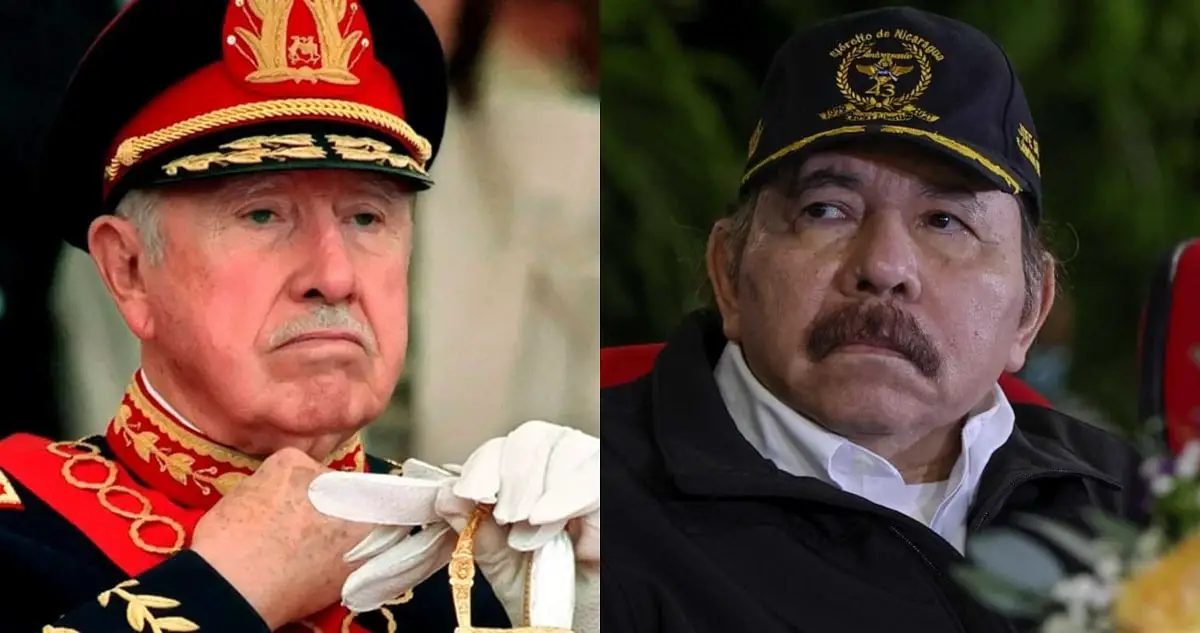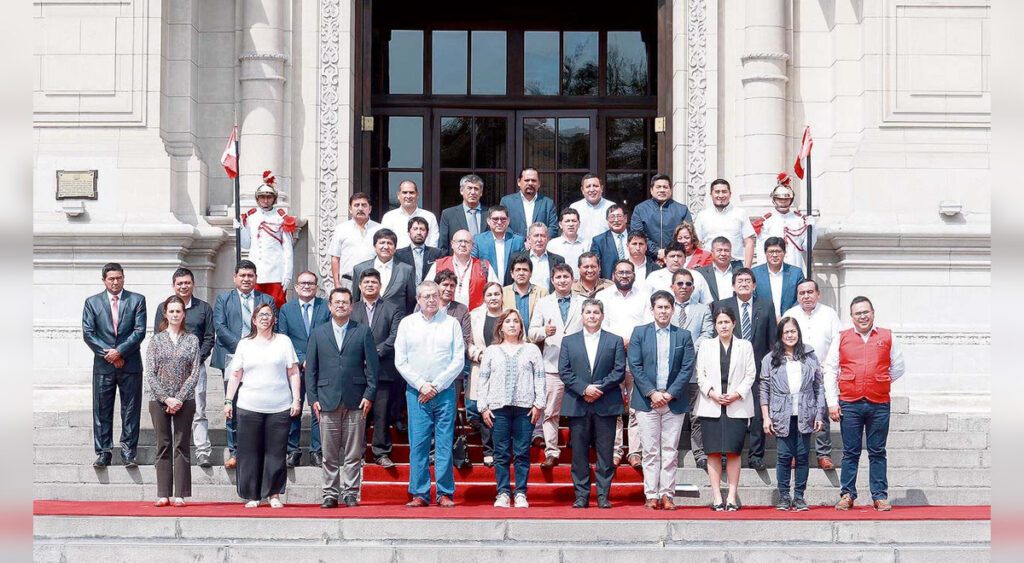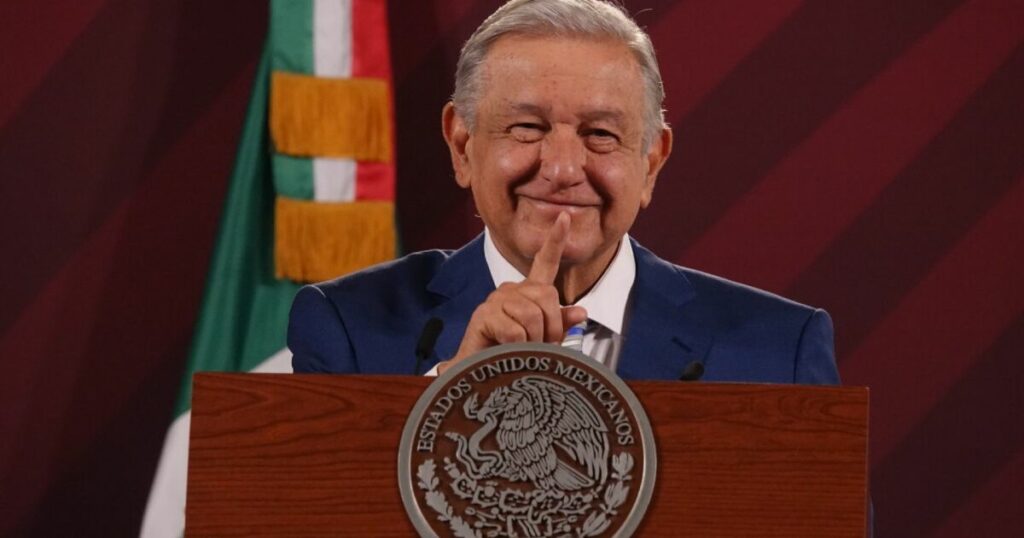When the Sandinista revolution triumphed in Nicaragua, in July 1979, the Nicaraguan writer Sergio Ramírez, now “denationalized”, was one of the five members of the Government Junta who triumphantly entered the Plaza de la Revolución in Managua.
Ramírez, 2017 Cervantes Prize winner, was on top of a fire truck, along with four other members of the Governing Board, including the one who would be the coordinator and later president, the current president, Daniel Ortega. Everyone celebrated the fall of the dictatorship of Anastasio Somoza Debayle.
Ramírez, who went into exile in Spain in October 2021 after an arrest warrant issued against him by his former partnerhas gone from being the protagonist of the revolution and vice president of Nicaragua (1985-1990), to being the face and tail of the Sandinista coin and “a traitor” for Ortega, who now, almost 44 years after that iconic photo in the Plaza de la Revolución, has “denationalized” it for being on the opposite sidewalk.
“The traitor Sergio Ramírez is already doing his analysis and says that we did wrong, that we should have removed them in a little while, in exchange for… he talks about a negotiation (…) like a mercenary,” Ortega launched when he announced on February 9 the release and deportation of 222 opponents to the United States, who were later deprived of their nationality.
Six days after that speech, a Managua Court of Appeals withdrew the nationality of the Cervantes Prize and 93 other Nicaraguans for alleged “treason against the homeland”.
The list included Moisés Hassan, another of the five members of the Governing Board. Also to Luis Carrión, one of the nine commanders of the revolution who fought against the Somoza dictatorship.
TOThey had previously taken it from the mythical guerrilla Dora María Téllezone of Ortega’s prisoners and who in 1978 risked her life in the assault on the National Palace to free 60 political prisoners, including Tomás Borge, Doris Tijerino, René Núñez, and other Sandinista leaders.
And also, the historical combatant Víctor Hugo Tinoco, who was vice chancellor of the Sandinistas.
“Pinochet 1973 – Ortega 2023”
“Augusto Pinochet 1973 // Daniel Ortega 2023,” researcher Juan Pappier, acting deputy director of the Americas division of Human Rights Watch (HRW), wrote on his Twitter, when comparing the Chilean constitutional reform of 1973 that allowed the removal of nationality to a native of Chile, with an expeditious law promoted and approved by the Sandinistas in Nicaragua last week.
Augusto Pinochet 1973//Daniel Ortega 2023 pic.twitter.com/c8I0IWBMwE
— Juan Pappier (@JuanPappierHRW) February 11, 2023
The issue of denationalization remains in the memory of Chileans, and Ortega’s latest measures remind many of what Pinochet did half a century ago.
The former Minister of Foreign Affairs of Chile Heraldo Muñoz, referring to the measures adopted in Nicaragua, told Ortega to follow “the lesson of the dictator Pinochet who deprived Orlando Letelier of his nationality. A shame in the 21st century.”
Letelier, who was Salvador Allende’s Minister of Foreign Affairs and Defense (1970-1973) and a member of the Socialist Party, suffered an insult by Pinochet’s civic-military dictatorship, before a terrorist attack took his life in Washington DC
Through a decree signed by fifteen ministers on September 10, 1976, Letelier was stripped of his Chilean nationality, fifteen days after he published in the United States his emblematic essay “The ‘Chicago Boys’ in Chile: the terrible price of economic freedom”.
Letelier, a prestigious Chilean politician, already in exile, began to work from the intellectual field both in the United States and in the Netherlands, which made him an internationally renowned figure with the capacity to put together an opposition pole to the Pinochet regime, which made him led to the eye of the Military Junta.
Case of Letelier, a benchmark for Nicaragua
The Letelier case “occurs in a context of dictatorship and persecution of opponents of the government headed by Augusto Pinochet, constituting, therefore, an unavoidable reference to evaluate what is happening today in Nicaragua,” the professor of International and Constitutional Law from the Central University of Chile, Edgardo Riveros Marín.
“It is a case that has a special symbolism —even though it is not the only one in which this measure was applied by the dictatorship in Chile— since he was deprived of Chilean nationality a few days before the terrorist attack that occurred in Washington that He took his life,” explained Riveros Marín, Chile’s vice chancellor between 2014 and 2018.
Another of the Chileans rendered stateless by Pinochet’s decision was José Manuel Zambrano, a former Efe journalist now deceased, who went into exile in London and returned to Chile with democracy and was press officer for the Senate.
The Latin American Association for Human Rights, in view of what is happening in Nicaragua, has indicated that this “emulates the worst repressive practices that the Videla dictatorships in Argentina and Pinochet in Chile used at the time.”
The “banned from the national territory” of Brazil
In Brazil there was a similar case. In 1969 the military junta decreed that fifteen opponents involved in the kidnapping of the then US ambassador, Charles Elbrick, were “banned from the national territory.”
The decree, however, did not clarify whether their nationality was withdrawn or they were only prevented from entering Brazil. In practice it did not allow them to obtain a passport and placed them in a situation equivalent to statelessness.
Among those affected was José Dirceu, who later became a minister in the first government of Luiz Inácio Lula da Silva and ended up in jail for corruption.
In 1978 that decree was abolished, one year before the amnesty decree of 1979.
The case of Mario Vargas Llosa
In Peru there is a case that did not come to fruition, but it had a great impact: that of the writer Mario Vargas Llosa.
Between 1992 and 1993, there were rumors about the possibility that the government of Alberto Fujimori (who had defeated Vargas Llosa at the polls) would strip him of his nationality.
Faced with this possibility and after Fujimori’s self-coup, Spain granted him nationality for fear that the writer would become stateless. Finally, Fujimori did not dare to strip him of his nationality.
In the case of Cuba, the government of which Daniel Ortega is an ally, certain people —mostly opponents, activists, and journalists— are punished extrajudicially with measures related to their passports, without withdrawing their nationality.
In the other Latin American countries, paradoxically including Nicaragua, the Constitution expressly prohibits withdrawing the nationality of a natural by birth.
Even so, Ramírez (Masatepe, Nicaragua, 1942), once Ortega’s number two, has been denationalized, but the writer maintains that “The more Nicaragua they take from me, the more Nicaragua I have”.


















